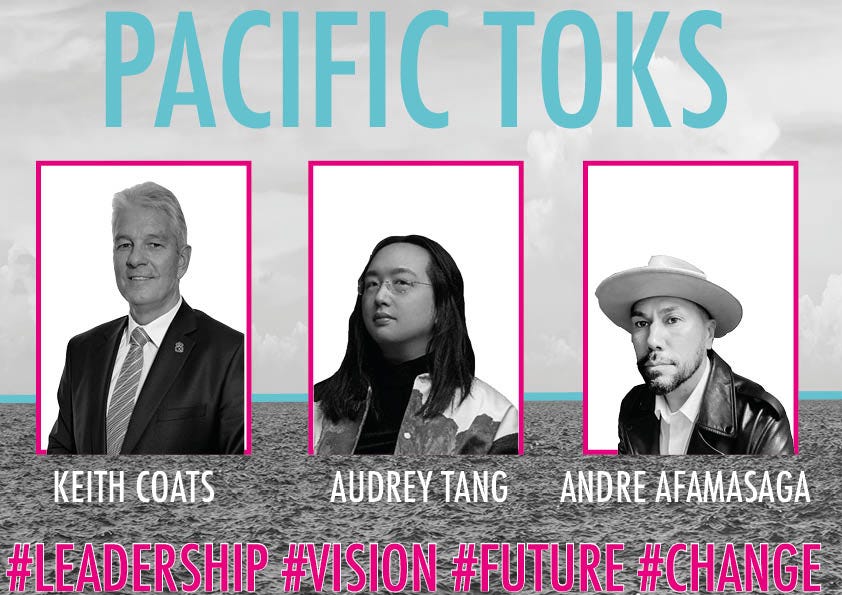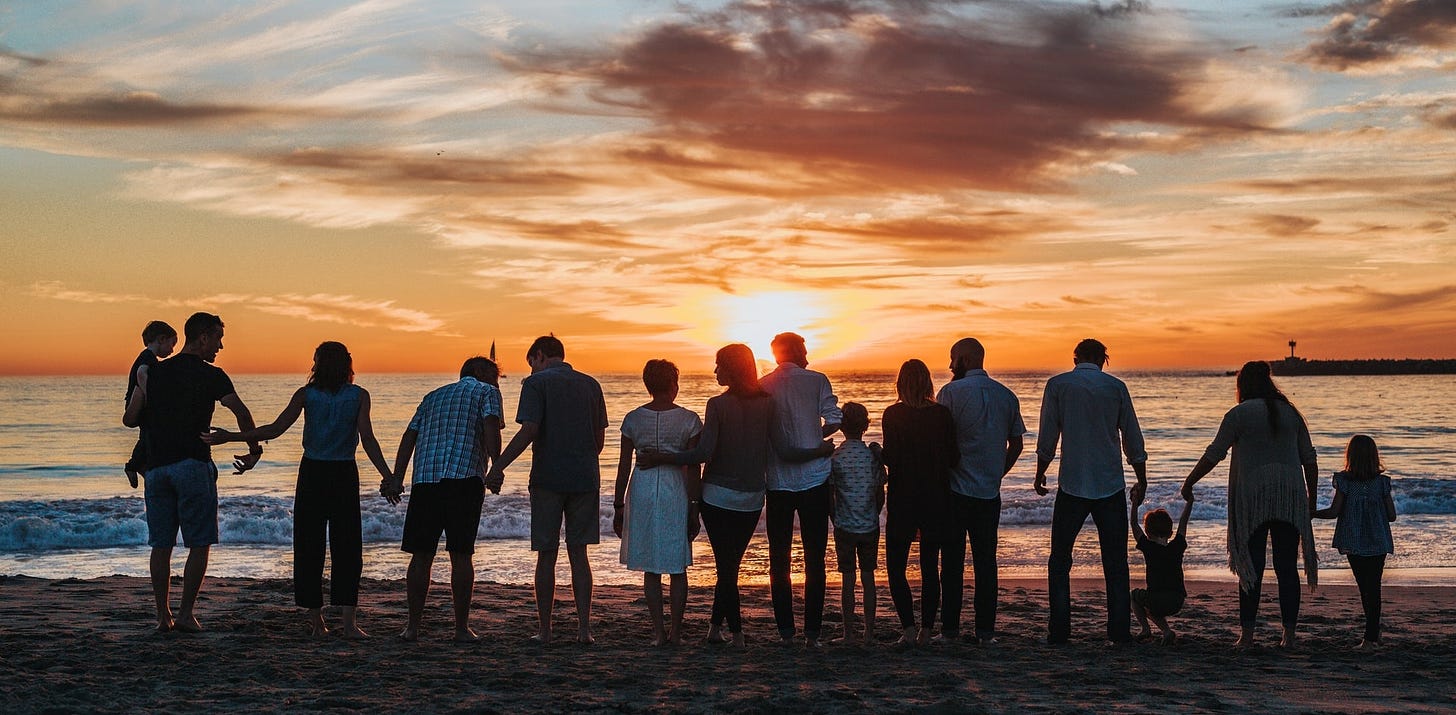
I have a huge family. My father is the youngest of ten siblings and my mother the second-eldest of seven. Believe it or not, I have 53 first cousins. And, yes, I know all their names.
When I told this to someone I met outside Pakistan (clearly someone unfamiliar with South Asian family structures), they felt the need to correct me. "No, that is your extended family. Your family is just your parents and your sister."
I didn’t argue because it’s hard to differentiate between these two types of families when the English vocabulary is limited to just one word: family. In Urdu, I would say khandaan to describe all my cousins, aunts and uncles.
The point is, everyone has a different idea of what is a family and our ideas about what makes a family are constantly evolving. Societies based on European traditions used to have strong kinships until the medieval times, after which the church imposed the nuclear family and made tribes irrelevant. Here, in the Pacific, the communal family is still quite strong - many children raised not only by their parents but also their grandparents, aunts and uncles.
What it essentially comes down to is the fact that there are people committed to raising healthy children and giving them the tools to lead a good life. Corporations, religions or even advertisements would tell you that there is only one type of family that creates a harmonious society but history tells us that’s not the case.
This week in The Global Tiller, we take a look at yet another type of family: platonic parenting, an emerging trend where two people, who are not romantically involved, agree to raise a child together.
While it was common among homosexual couples, co-parenting is becoming increasingly common among heterosexual singles as well. Websites, such as Coparents.co.uk, modamily.com or PollenTree.com are matching up potential parents across the world, with the pandemic lockdown increasing their traffic surges by up to 50%.
Not everyone is using these websites. Many people are entering co-parenting agreements with their friends, like these two friends in Canada who won a court case to become legal co-mommas to a seven-year-old boy.
There are many ways in which people are making this work. Sometimes they use traditional birthing methods, or seek a surrogate. Sometimes they live in the same house, or the same apartment building so that the child is close to both parents. Much like any other relationship, co-parents are relying on effective communication and shared values to create a safe environment for their children.
It is still a relatively new concept, and many people who are pursuing this path are still keeping their choice private, but anecdotal evidence suggests this family structure does not necessarily have any negative impact on children. In fact, if carried out properly, co-parenting can create healthy role models for children to follow, in much the same way as divorced couples manage child custody.
As this new kind of family structure takes root, it would be interesting to imagine how it will impact other aspects of how we live. Since traditional neighbourhoods are designed for nuclear families, will we see the development of communes where co-parents can stay close to each other? How will our laws change to integrate this concept? Will government forms simply ask for the names of parents, instead of specifically demanding mother’s and father’s names? How will our language evolve to talk about new parental roles? Will 'mom', 'dad', 'husband', 'wife', suffice or will we need to invent new words for these new relationships?
We hope this issue of The Global Tiller gives you some food for thought. Do let us know who you call your family.
Until next week, take care and stay safe.
Hira - Editor - The Global Tiller
What’s new with us?
Did you miss our first two Pacific Toks? They used to be called ‘Conversations with a leader’ but Pacific Toks has a nicer ring to it, don’t you think? Don’t worry, we’re bringing them to you right here:
Ep 3 - Andre Afamasaga on gender and sexuality in the Pacific (coming soon!)
Follow Pacific Toks on Apple Podcasts and Spotify to make sure you don’t miss out on the upcoming episodes.
Good news for the readers of The Global Tiller! You will be automatically signed up for the Pacific Toks channel on Substack so you’ll get an email directly into your inbox whenever we publish a new episode (that’s about once a month).
If you’d rather not receive the alert in your inbox, feel free to unsubscribe by following the ‘Unsubscribe’ link in your Pacific Toks email alert.
… and now what?
Platonic parenting - the title itself could make you roll your eyes. Here we go, yet another concept on how to make a family.
Why would you roll your eyes?
It could be a generational perspective. I know my mother would.
It could be religious beliefs. I know one of my sister’s would.
Or, it could be just out of curiosity because you never really tried to look beyond what you’re used to. I know my nephew would.
Those three people - with very different perspectives, point-of-views and approaches to the world - are all part of my family. So eventually, who can say what exactly a family is? There are probably as many definitions as there are families on this planet.
Yet, in times of uncertainty such as those we all live in for now, humans tend to look for systems, frameworks, labels and categories to try to make sense of the world. It’s normal, we all do that. What becomes a problem is when those frameworks or systems are seen as objective explanations of the world.
When this happens, divisions run through our communities. All of a sudden, my vision of the world becomes the standard through which everyone should live. So whoever doesn’t fit, is not part of my 'family'. There’s danger in this. Not only because of the social division it creates. But also because when someone differs from us just a little bit - because of sexuality, way of life or something else - this tiny different makes the person enter the 'uncanny valley of humanity' as researchers put it. And when this happens, we tend to easily de-humanise others.
Going back to platonic parenting. Is it really different from conventional couples who have been married for so long they forget they’re in love? Or from couples who were wedded through arranged marriage. You end up finding ways to cohabit, to coexist, to find your way to some balance, some happiness. And eventually, that’s what we’re all trying to do: finding the best recipe for our life, our happiness and those around us. It’s not a crime, nor is it weird. It’s human. And we’re lucky to live in a world where it has become slightly more acceptable to just be who you are.
I recall the wise words of writer Andrew Solomon:
I don't accept subtractive models of love, only additive ones. And I believe that in the same way that we need species diversity to ensure that the planet can go on, so we need this diversity of affection and diversity of family in order to strengthen the ecosphere of kindness.
However you define your family, whoever you put in your family, let’s aim for a definition as diverse and inclusive of this concept, so we can all avoid this 'uncanny valley' of dehumanisation.
For more stories on inclusivity and diversity, keep an eye out for our upcoming episode of Pacific Toks where I discuss sexuality and gender in the Pacific with Andre Afamasaga. You may also like to read my last blog on “The closed ego’s echo”.
Philippe - Founder - Pacific Ventury





